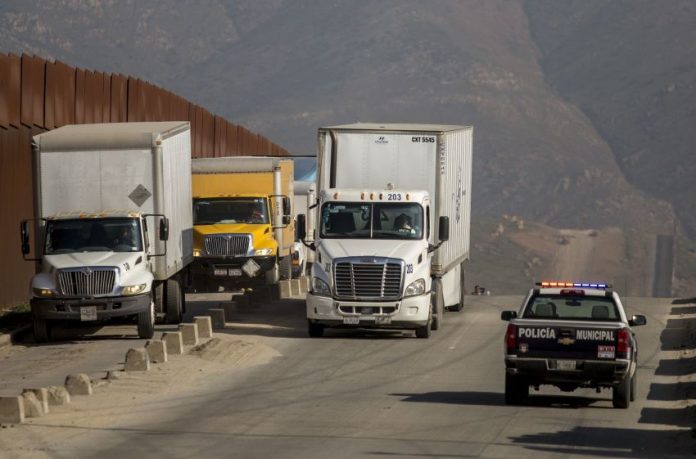Almost 85,000 transport trucks have been targeted in robberies on Mexican highways during the term of the current government, the Confederation of Industrial Chambers (Concamin) highlighted this week.
The president of Concamin, an organization made up of 125 business chambers and associations, told a press conference that there were 84,963 highway robberies in the first five years of the government led by President Andrés Manuel López Obrador, who took office on Dec. 1, 2018.
José Abugaber Andonie noted that the the figure is equivalent to 46 truck robberies per day.
He said that the crime — which includes the hijacking of trucks in some cases — costs the economy over 7 billion pesos (US $415 million) per year and asserted that insecurity is “rampant” and “out of control” in Mexico.
Foodstuffs, construction materials, auto parts, medications, fuel, clothing and footwear are among the products criminals are stealing on the nation’s highways, Abugaber said, adding that stolen goods may not just be sold on the black market, but also reincorporated into the formal market as a result of criminals pressuring stores to purchase them.
Theft of goods from transport trucks increases the price of those products “to such an extent that it has become an inflationary factor,” the La Jornada newspaper reported.
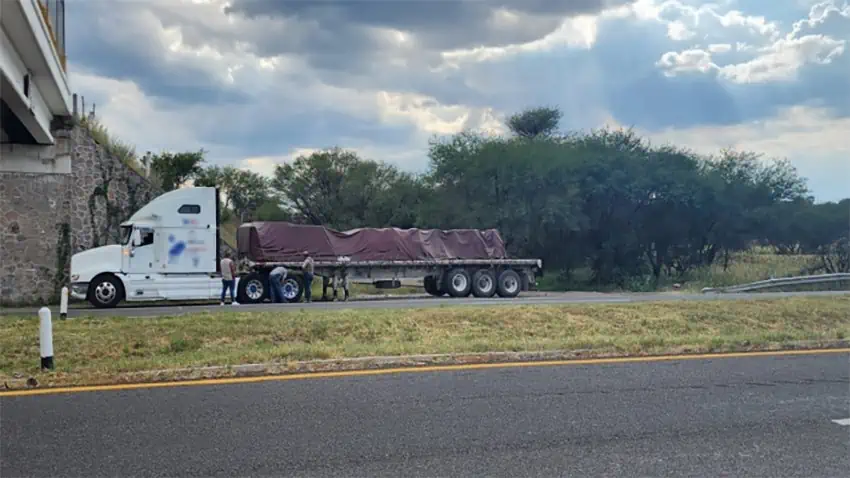
The Concamin chief said that highway robbery and insecurity in general pose a risk to investment in Mexico, which is currently on the rise as more and more foreign companies make the decision to set up operations or expand existing operations in the country.
“The robbery on freight transport concerns us because it’s on the rise and if it’s not controlled it will get out of hand,” Abugaber said.
He said he had expressed the industrial sector’s concern about insecurity in Mexico during a meeting with Claudia Sheinbaum, the ruling Morena party’s candidate for the June 2 presidential election and the person considered most likely to succeed López Obrador.
In that meeting, which took place earlier this week, Abugaber told Sheinbaum that Mexico’s insecurity problem can only be solved if “everyone” contributes to the solution — “government, business people, industrialists, social organizations, citizens, media outlets.”
“We’ll work with the next government … on strategies and public policies that will allow peace and tranquility in out country to be recovered,” he said.
Where is the robbery of transport trucks most common?
During the term of the current government, México state has recorded the highest number of robberies of transport trucks with some 30,000.
Ranking second to fifth for highway robberies during López Obrador’s presidency are Puebla, Guanajuato, Michoacán and Jalisco.
Official data shows that robberies of trucks in México state, Puebla and Michoacán accounted for 82% of all incidents of the crime in the first 11 months of last year. Almost half of the cases — 46% — occurred in México state, while more than one quarter — 28% — occurred in Puebla.
San Luis Potosí and Jalisco ranked fourth and fifth, respectively, for robberies of transport trucks in the first 11 months of last year.
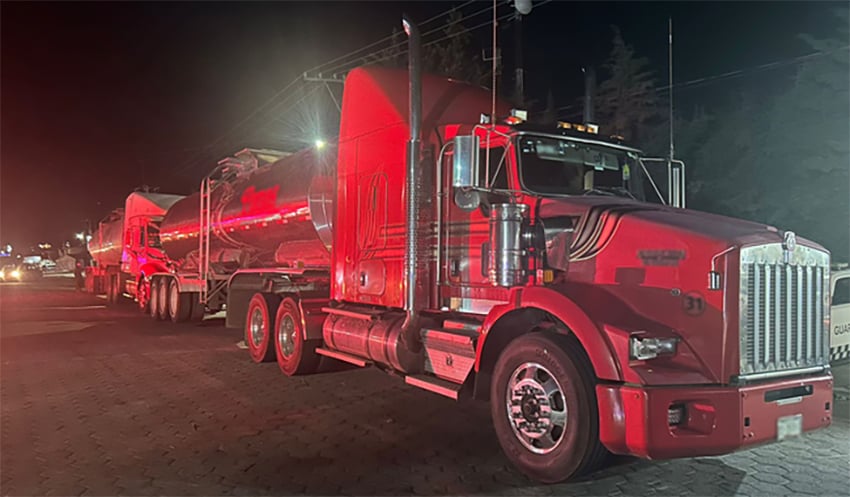
Data shows that most robberies occur between midnight and 6 a.m. on weekdays.
There is also evidence that truck drivers are victims of extortion, forced to make regular payments to criminal groups on highways in some part of the country amid threats of violence if they don’t comply.
“Investors are looking at all the scenarios,” Abugaber said.
“… For example, in Guanajuato, they had more investment than Nuevo León, but today they have less because it has been affected by insecurity,” he said, referring to broader security problems, including a high homicide rate in the Bajío region state.
The modus operandi of criminals targeting transport trucks
Writing for the non-profit organization/think tank Global Americans, trade and risk management expert Mark Vickers noted that “cargo truck hijacking is a major risk for logistics companies in many rural regions of central and southern Mexico.”
“Criminal groups in Mexico are using sophisticated technology, including GPS jammers and techniques such as creating fake police checkpoints to stop trucks, provoking roadway accidents to stop vehicles, and, in many cases, using gunmen in passenger vehicles to force cargo truck drivers to stop. In many incidents, criminals temporarily kidnap drivers along with the trucks,” he wrote in an article published Jan. 4.
“These types of hijackings are a constant concern on the highways near Mexico City,” Vickers added.
Vickers, founder of the cross border insurance company Borderless Coverage and head of international logistics for the insurance agency Reliance Partners, also wrote that “just 1% of all hijackings occurred in Mexico’s northern border states” during the first nine months of 2023.
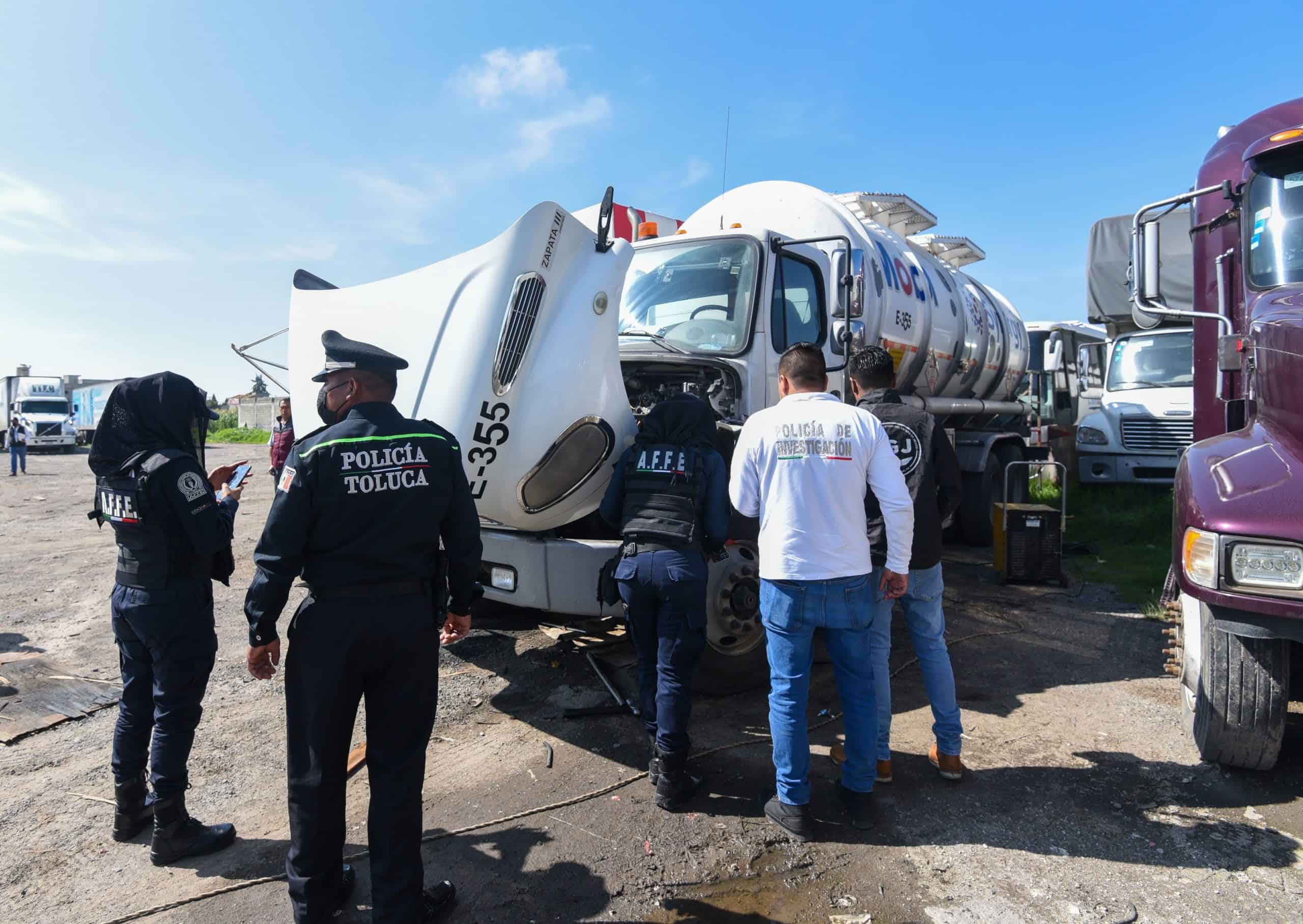
“Until Mexico’s police are capable of improving highway security in its central and southern regions, it’s likely that most nearshoring investment will continue to flow towards states in the north that have better security schemes, and, therefore, do a better job of protecting cargo trucks from hijackers,” he wrote.
“More broadly, however, until Mexico reduces the risk of cargo truck hijacking, the country is likely to miss out on billions of dollars of potential new foreign investment,” Vickers said.
“Minimal” presence of the National Guard on Mexican highways
Javier Robles, director of public relations and sales at the private security company Grupo Multisistemas de Seguridad Industrial, told La Jornada that “unfortunately there is no presence of the National Guard” on many highways in Mexico. “It’s very minimal,” he clarified.
Sections of several highways that run through México state are considered hotspots for the robbery of transport trucks, including the Mexico City-Querétaro highway and the Mexico City-Pachuca highway.
Among the other highways with a high incidence of truck robberies are the Arco Norte highway in Hidalgo, the Querétaro-Celaya highway, the Puebla-Orizaba highway, the Matehuala-Monterrey highway and the Morelia-Lázaro Cárdenas highway.
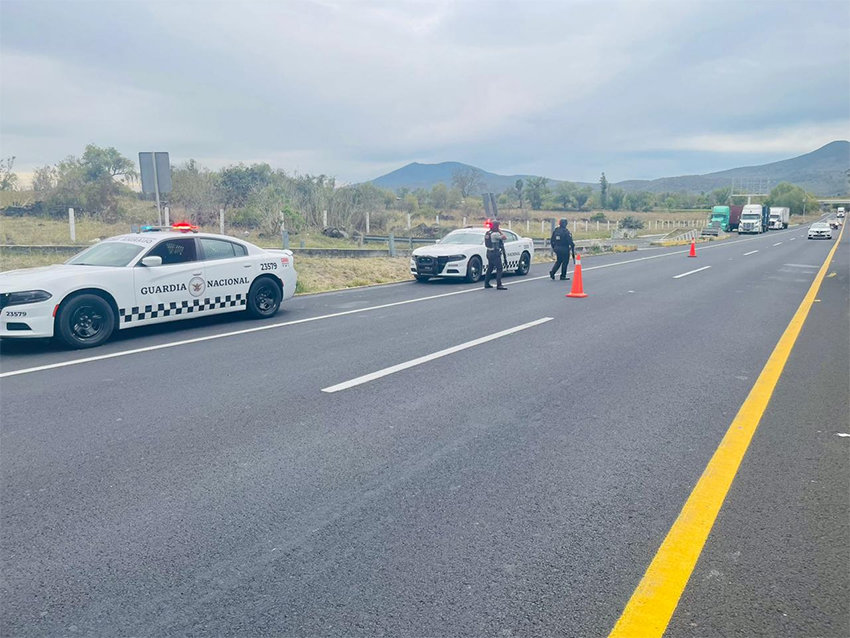
Citing truck drivers, La Jornada reported that some highways have become “true hells” due to the operation of criminal groups and the lack of surveillance by authorities.
“Members of the sector believe that authorities are overwhelmed and that operations to prevent the crime haven’t yielded results. Some of them don’t rule out the possibility of complicity with security force personnel,” the newspaper said in a report published Thursday.
“The majority of robberies are now with violence and weapons,” Robles said.
Gerardo García, president of the National Confederation of Potato Producers (Conpapa), told La Jornada that insecurity is one of the greatest challenges for Mexico’s agricultural sector, which ships significant amounts of product to the United States. He called on the federal government to find a solution to the problem.
Farmers “harvest their grains, harvest their vegetables or fruit, load the truck and it turns out that the truck never reaches its destination. It’s stolen — drivers are taken in their trucks for two days, goods are unloaded, sold … and later the trucks and drivers are released,” García said.
With reports from Reforma, El Imparcial, El Financiero, La Jornada and Animal Político
